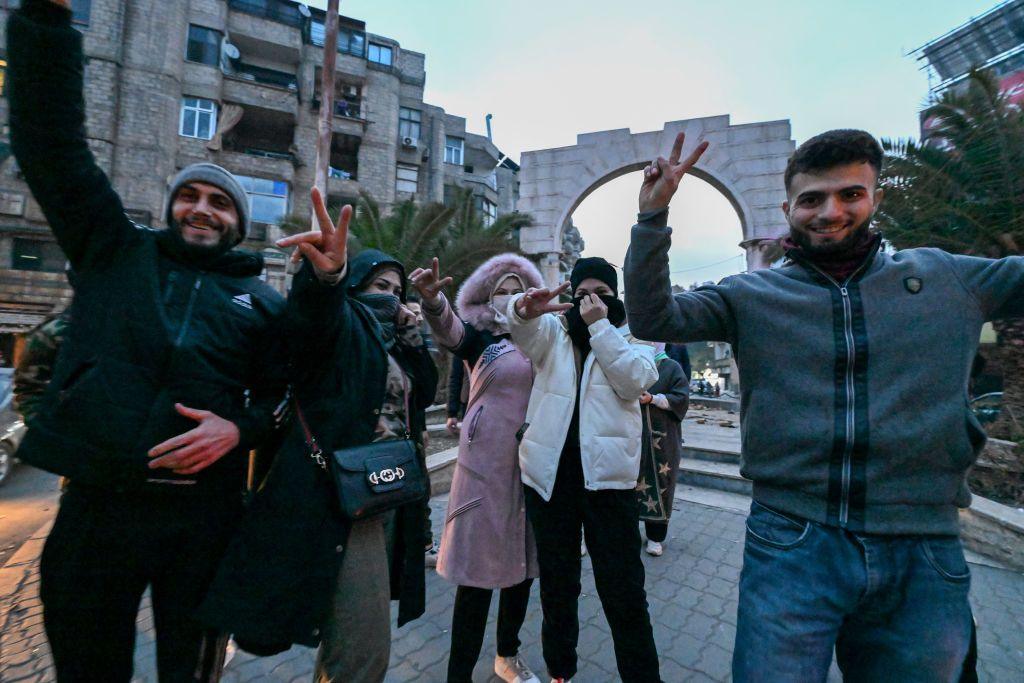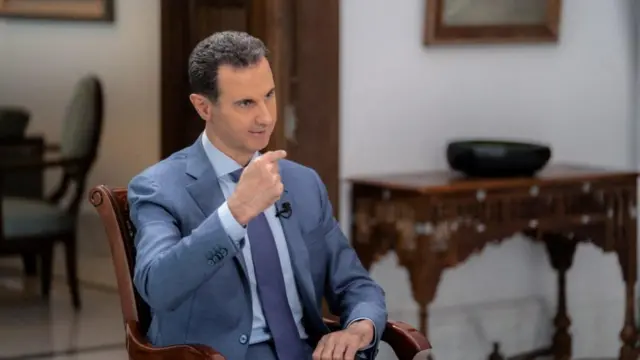Headlines
Syrian Rebels Claim President Assad Has Fled, Declare Capture of Damascus

Syrian rebels have declared the capture of Damascus, with claims that President Bashar al-Assad has fled, signaling a dramatic shift in the ongoing civil war.
Rebel forces in Damascus have announced that the capital city is now “free” from long-time ruler Bashar al-Assad following the withdrawal of government troops.
It is said that public institutions will remain under the oversight of the former prime minister until they are officially transferred.
According to reports, Assad has departed from Damascus by plane bound for an undisclosed location.
Syrian Prime Minister Mohammed Ghazi al-Jalali has stated that he is currently unaware of Assad’s whereabouts.
Unconfirmed footage circulating on social media suggests that thousands of prisoners have been released from the infamous Saydnaya prison, known for being a place where Assad’s opponents were tortured and executed.

Rania Kataf, a 39-year-old researcher specializing in Syrian cultural heritage and currently based in Damascus, shares with me: “No one slept in Syria last night… no Syrians abroad did either.”
Everyone in the community was holding their phones, eagerly anticipating the final news.
Kataf, the administrator of a Facebook group named Humans for Damascus, shares her “mixed feelings” about the recent offensive by rebel groups. Initially, she felt “scared,” and later became “worried that this would not work out.”
“This morning, she added that ‘overwhelmed’ doesn’t even begin to describe it.”
“We all feel as if we’ve been underwater for 13 years and have just taken a breath,” she says, referring to the beginning of protests against President Bashar al-Assad in 2011.
She talks about a “fear” that once existed among Syrians, which she now describes as having “dissolved”.
“We’ve returned to the situation we faced in 2011,” Kataf continues.
I am 13 years younger, and we all feel that way too.
In an interview with Al-Arabiya, Syrian Prime Minister Mohammed Ghazi al-Jalali stated that the country ought to conduct free elections. This statement was reported by Reuters news agency.
He also stated that he had been in touch with rebel commander Abu Mohammed al-Jawlani concerning the transitional period.
This morning, Al-Arabiya reported that the prime minister stated his last communication with Bashar al-Assad was “yesterday evening,” and he is unaware of Assad’s current location.
READ ALSO: Syrian Army Briefs Officers on Potential Regime Change – Reuters
Just a reminder: early this morning, we shared details about an address the prime minister delivered on social media.
He expressed his willingness to assist in doing what is best for the people.

With support from Russia and Iran, Bashar al-Assad defeated the opposition and remained in power.
This time, things played out differently. His allies, absorbed in their own matters, largely abandoned him. Lacking their support, his troops were unable—and seemingly unwilling in some areas—to halt the rebels’ advance.
First, they captured Aleppo, the nation’s second-largest city, last week. Following that was Hama, and a few days later, the crucial hub of Homs. Within a matter of hours after these victories, they moved into Damascus.
Numerous individuals are glad to see him depart. The question remains: what unfolds next? This situation involves an insurgency driven by Islamist rebels from the Hayat Tahrir al-Sham (HTS) group, which has origins in al-Qaeda and a history of violence. In recent years, they have attempted to rebrand as a nationalist movement, with their latest communications taking on a diplomatic and conciliatory tone.
However, a lot of people remain skeptical and worry about their possible intentions.
Just a week ago, the idea of Bashar al-Assad’s downfall seemed nearly inconceivable as rebels launched their remarkable campaign from their stronghold in Idlib, located in northwestern Syria.
Bashar al-Assad ascended to power in 2000 following the death of his father, Hafez, who had governed the nation for 29 years with an iron grip. Like his father, Bashar inherited a strictly controlled and repressive political system. Initially, there were aspirations that he might be different—more open and less harsh—but these hopes quickly faded.
Assad will always be remembered as the leader who violently suppressed peaceful demonstrations against his regime in 2011, sparking a civil war. This conflict resulted in over half a million deaths and forced six million people to become refugees.
